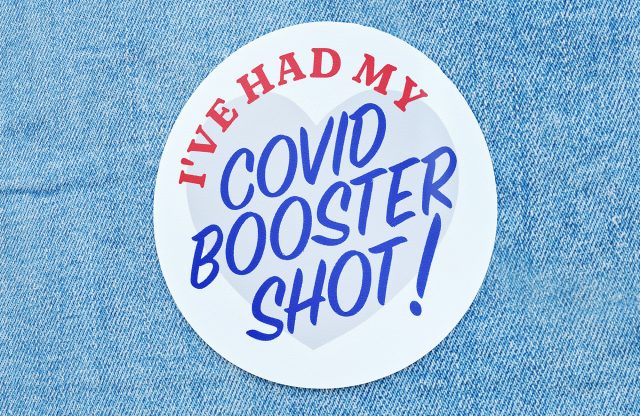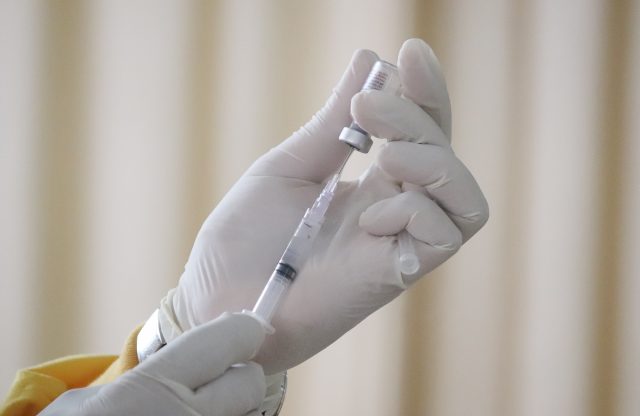Dr Robert Hess: Update on Booster jabs and vaccine breakthroughs.

Dr Robert Hess – 11/26/2021
Dr Robert Hess: Update on Booster jabs and vaccine breakthroughs.
Infection rates in Germany, Austria and the Netherlands have risen to a new and worrying high. Hospitals have had to postpone planned surgical procedures, and intensive care units are rapidly filling up. The situation in Germany is unfortunately a forerunner of what is likely to happen in the United States soon. The UK had the unwelcome distinction of being ahead of the curve in Western Europe, although the rate there now seems to be leveling off. We expect the current fourth wave will hit the USA in a few weeks. There are two main reasons for this: firstly, waning vaccine efficacy paired with vaccine breakthroughs, and secondly, the slow progress being made by the booster vaccination campaign. More and more studies are showing what we already concluded a few weeks ago, namely that the protection afforded by the vaccines is declining at a rapid rate and that antibody counts are also falling fast.
Eleven months ago, there was great jubilation at the test results from a study conducted by BioNTech which showed that their vaccine had a 95% success rate against infection with the SARS-CoV-2 virus. Not long after, Moderna reported a similar impressive result. This was all the more encouraging, because the FDA had set a modest efficacy threshold of only 50%. Since then, billions of people have been vaccinated against the coronavirus, and numerous studies have confirmed the high protective effect in practice.
Unfortunately, it is now clear that even a double dose of vaccine is not going to be enough to end the pandemic. There were indications of this relatively early on when the initially high antibody titers in the blood of vaccinated individuals dropped again just a few months after they had received their second dose. In Israel, which had vaccinated its population earlier and faster than any other country, the infection curve rose steeply again in the summer, but this has since been flattened out and brought under control by the booster vaccination roll-out.
In Germany, too, it is primarily unvaccinated Covid-19 patients who are occupying beds in intensive care units, but the number of breakthrough infections is also rising. This does not come as a complete surprise from an immunological perspective, as we know that vaccine protection gradually wears off after approximately six months.
Large-scale analyses from different countries now reveal the extent to which vaccine protection declines over time. Scientists in Israel recently published the results from their analysis of cases involving vaccinated adults who had contracted Covid-19 between 11th and 30th July. These showed that individuals who had been vaccinated seven months earlier were at twice the risk of infection as those who had been vaccinated only five months earlier. A study by Pfizer also reached the same conclusion.
An analysis from Sweden produced an even more unpleasant surprise. The research team there found that protection against infection was no longer detectable at all seven months after vaccination and that even protection against hospitalization was down to only 42 percent. Another study from the UK made a comparison using the case-control method. According to this observational study, protection against infection two months after vaccination was 96 percent compared to the placebo group. Five to seven months later, however, it had dropped to 84 percent. Data from the USA also show the diminishing effect.
The effectiveness fades particularly quickly in the elderly, whose immune system responds more weakly anyway. And people in this most at-risk group are precisely the ones whose protection depends on vaccination administered more than six months previously.
With a large proportion of its population now triple-vaccinated, Israel seems to have broken the fourth wave. A recently published analysis shows the effect of the booster campaign, with protection for recipients of the third dose now restored to a highly satisfactory 93-percent level.
The data we have gathered had already indicated the dwindling protection afforded by the vaccines, and what we already suspected has now been confirmed by the latest analyses and studies. The third jab is not “just” a booster per se, but rather complements the vaccination series. According to our data, a third dose of the vaccine finesses immunity and completes the vaccination protection. The antibodies after a third shot are usually in a range that cannot be achieved by just two. This means that, even if vaccine efficacy slowly declines again after a third dose (and it will), it does so from a higher baseline and thus probably more slowly. We are working on the assumption that “fully vaccinated” status will soon no longer apply to those who have had only two doses. How policymakers and governments react to this remains to be seen.
Vaccine breakthroughs are becoming an increasingly acute problem, and booster vaccination is currently the only way to tackle it. The more people, especially the elderly, receive booster vaccinations, the more we will be able to flatten out the wave. In our opinion, countries that have a vaccination rate below 70% and in which the population received their first and second vaccinations early are at a disadvantage in this scenario. The recommendations we make to our clients will continue to be on an individual and, above all, laboratory-dependent basis. This means that we look at the overall picture of antibody quantity and quality, T‑cell immunity and general immune system status. Our recommendations are therefore not country-dependent and may therefore not necessarily be in accordance with national rules and regulations.
We expect that the future will bring more opportunities to recommend full protection against Covid-19. Although vaccination is currently our main pillar of defense, we expect that other methods such as approved antiviral drugs, more effective antibody therapies and differentiated vaccination regimens will be increasingly incorporated into the protection program in the near future.

